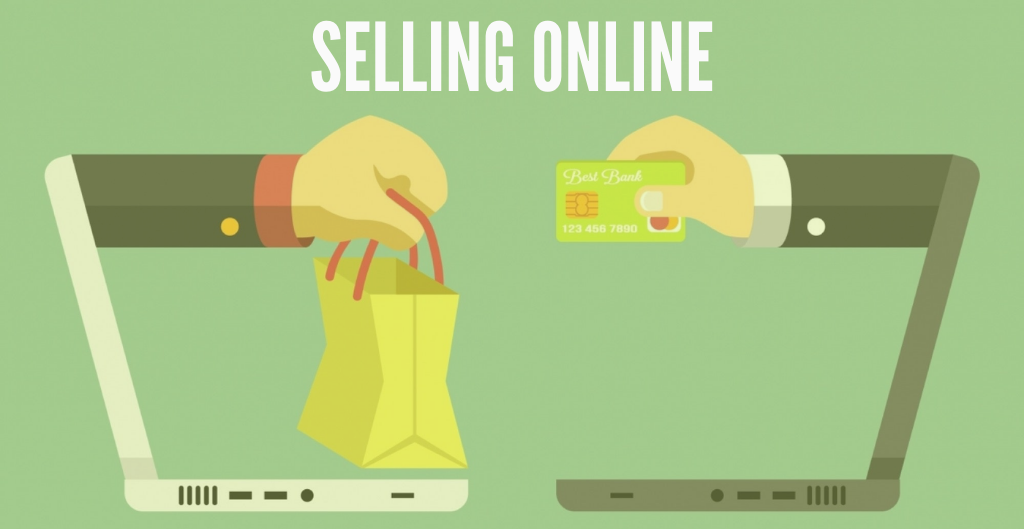Online sales are still going strong. The sector is continuing to grow every year, driven by new trends. But opting for e-commerce means having to choose where to sell your products. Will you go for a customised e-commerce site or a marketplace? Take a good look at the main differences between these two options, their advantages and disadvantages.
Internet sales – where do I start?
If you want to sell your products on the Internet, there are two ways forward. The first is to use online sales platforms. Also known as marketplaces, these platforms are perfectly optimised and well referenced by search engines. This means that the products put on line are visible and automatically gain the trust of buyers. The second path is to create your own online shop. This is an effective way of selling on the Internet, but it calls for a professional to design and develop your e-commerce site.
Whichever option you choose, two aspects will be crucial if you want to boost your Internet sales. The first is payment security. To reassure, protect and gain the trust of your customer, you must offer them a 100% secure platform. But that’s only the beginning, as you also need to choose a platform that has a short loading time and is ergonomically designed.
Selling on marketplaces – the pros and cons
A marketplace is an online sales platform that is managed by a third party. It is a larger merchant site that has its own reputation and offers a sales area to other sellers. The platform is remunerated on the basis of a commission on each sales transaction made. All brands and companies that are present on a marketplace are represented together.
Marketplace – a win-win solution
Small and medium-sized businesses in particular are attracted to the services offered by the marketplace. If you sell your products on this platform, you no longer need to go through lengthy referencing processes. The platform uses competitive keywords to appear on the first page of search results. This allows you to focus on your core business, easily attract your targets and convert them into customers.
Another thing worth considering is that selling on an online sales platform also allows you to benefit from the best web marketing tools. Since the remuneration of merchant sites depends on the sale made, it is in their interest to provide each seller with APIs and effective tools to sell better. These tools make it possible to:
- easily share the product catalogue,
- evaluate and determine selling prices by introducing an element of competition,
- retrieve all the information needed to process orders,
- plan and receive reports on the various operations carried out,
- expand the market by choosing a platform with international coverage,
- reduce the cost of inventory management, marketing and customer service.
Marketplace – the limitations of this platform
There is no denying that the operating principle of a marketplace offers many advantages for the different parties. However, stock shortages can put you at a disadvantage. It often leads to a penalty and a reduction in your visibility on the marketplace. It’s worth remembering that, in addition to benefiting from the platform’s reputation, your presence also helps to optimise the site’s referencing.
To optimise the visibility of your products, increase the transformation rate and sell better, choosing the right platform is a must. If your goods are geared towards the general public, you’re best off with e-commerce sites like eBay, Amazon or Etsy. If, on the other hand, your products are aimed at a specific target group, a specialised marketplace is your best bet. There are marketplaces out there that specialise in baby products, ready-to-wear clothing and household appliances.
Launching your own e-commerce site – what you need to keep in mind
There are a number of advantages to setting up a customised e-commerce site. However, it is essential to entrust the site’s design and management to a professional. This will give you a customised and personalised site that reflects the company’s brand image and the products or services offered. Bringing in a professional also helps to optimise the visibility of the site on search engines and to generate more sales.
Setting up your own e-commerce site – the pros
Creating and customising your own website means having a platform that remains open 24/7, whatever the circumstances. This allows your company to:
- sell products at any time,
- reach customers from all over the world regardless of time differences,
- showcase flagship or best-selling products to grab customers’ attention,
- access a huge source of information to expand the customer database,
- add positive reviews from other customers to ramp up the conversion rate,
- customise the presentation of the online shop according to the customers to increase sales,
- use the best marketing tools to encourage impulse buying,
- vary the media and forms of content to improve the site’s natural referencing on search engines.
Launching an online shop – what are the possible drawbacks?
Avoir son propre site e-commerce ne présente aucun inconvénient majeur, sauf au niveau du coût d’investissement. La création du site, le choix de l’hébergeur, la création et l’optimisation des contenus constituent un investissement non négligeable. Ainsi, si vous choisissez cette option, vous devez mettre en avant les différentes stratégies web marketing visant à accroître la notoriété de votre site sur le web.
Par ailleurs, avoir sa propre boutique en ligne, c’est faire face aux différents problèmes techniques qui peuvent rendre le site inaccessible et assurer la sécurité des informations. Près de 90 % des internautes qui effectuent un achat en ligne utilisent leur carte bancaire. Votre site doit être entièrement sécurisé pour lutter contre la fraude et rassurer vos clients.
Par ailleurs, pour vendre, il faut que votre site soit disponible et rapide… C’est pourquoi il est crucial de le mettre sous surveillance et ça, c’est le métier d’internetVista. C’est un service professionnel de monitoring qui vous prévient en temps réel quand une erreur survient sur votre site. De plus, internetVista vous permet de mettre sous surveillance votre funnel de vente et simuler un parcours utilisateur sur votre site.
Comparative table marketplace vs e-commerce site
| Pros | Cons | |
|---|---|---|
| Marketplace | - broad visibility, - easy to manage and put online, - a platform that is easy to use and accessible in just a few clicks. | - conditions, regulations and technical constraints to be respected, - a commission on each sale. |
| e-commerce site | - a customisable marketing strategy, - tailor-made content in line with the customer’s profile, - compliance with its own graphic charter. | - high cost, - can take time to put the site online, - lengthy referencing work. |



